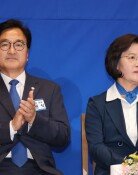S. Korea lags behind global trend of untact car sales
S. Korea lags behind global trend of untact car sales
Posted August. 20, 2020 07:40,
Updated August. 20, 2020 07:59
Untact online sales systems are gaining traction in the global automobile industry in the face of COVID-19. It is even predicted that about one-third of all cars sold in Europe will be sold online five years later. However, the structure of the South Korean market only allows car purchases through salespersons or dealers, lagging behind the global trend.
According to the automobile industry news on Wednesday, Volkswagen Group will sell its new electric vehicle ID3 to be launched next month both online and offline. The online sales will be first introduced in Europe and gradually expand to other regions. ID3 is the first model of Volkswagen Group to have a full online sales system.
Many countries around the world are rapidly embracing online car sales culture. Ford Motor Company, AB Volvo, and Groupe Renault are already operating active online sales systems. Mercedes-Benz, which introduced such a system in 2013, is now selling cars online in South Africa and Sweden with a plan to expand to Europe and Australia. In the 50 states of the U.S., cars of various brands can be purchased on online platforms, such as Amazon.
Bayerische Motoren Werke AG sold its cars via WeChat on the last year’s Singles' Day, the largest shopping holiday in China. A hundred cars available for the day were sold out in just five minutes. Geely Automobile Group Company Limited, a Chinese motor company, also built an online sales network early this year.
In South Korea, certain services, such as price estimation, are provided online. A customer of Renault Samsung Motors can add desired details, such as color or price range, and see an estimated price online before finalizing a contract with a dealer. GM Korea has also begun e-estimation consultation services to strengthen its untact services.
However, a system that allows the complete purchase of cars online without any face-to-face interaction, such as Tesla Inc., is lacking in the country. The biggest challenge is the opposition of labor unions over the concern about sales decrease in offline dealerships and salespersons. Hyundai Motor Company considered selling cars through the home shopping channel last year but scrapped the plan due to the opposition of its labor union.
As the untact culture spreads, however, the introduction of online sales channels seems to be a matter of time. Experts emphasize that companies should further develop its competitiveness by providing training to enable employees to take over different roles and come up with measures to ensure employment stability. “Salespersons and dealers are the experts with the utmost knowledge about cars,” said Professor Lee Ho-geun of the Department of Automotive Engineering at Daeduk University. “One of the potential solutions is to encourage them to switch to the role of an automobile communicator by providing training for maintenance techniques and communication.”
Ji-Young Jeong jjy2011@donga.com







